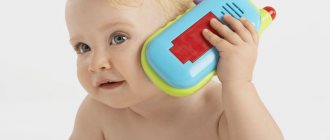» Human body » Child
Everyone knows that newborns experience the phenomenon of regurgitation after feeding. This process can be normal and pathological. In what cases should such regurgitation raise suspicions?
- After eating, the child burps and there is an increase in excitability, and all this is accompanied by crying.
- The weight gain is too low according to the norms at his age.
- The child vomited blood just after eating.
- Spitting up too often and too much, which can feel like vomiting.
In our article we will talk about the alarming case when a child burps with blood.
- 2 What are the causes of regurgitation with blood?
- 3 What to do if a newborn spits up with blood?
- 4 What to do to prevent your baby from burping frequently after eating?
- 5 When should you see a doctor?
- 6 What do experts recommend?
Why does a baby spit up?
Regurgitation, from a medical point of view, is the involuntary expulsion of stomach contents from the mouth. For most infants, regurgitation is a normal phenomenon; by the age of four months it becomes less frequent, and by the age of one year it disappears completely.
If the child spits up, but is active, cheerful and does not lose weight, then there is no reason for alarm. But do not confuse regurgitation with vomiting, these are different concepts. When vomiting, the contents are released from the intestines, and all internal organs and abdominal muscles tense.
It can begin suddenly, accompanied by pale skin, increased temperature and cold extremities. This is where you should sound the alarm; this indicates an incipient disease or poisoning.
The main causes of regurgitation in children
It is necessary to find out why the baby spits up after feeding. Here are some reasons for this:
- a common cause of regurgitation is excessive overfeeding of the baby;
- swallowing air with milk, this occurs when the mother’s nipple is not captured correctly;
- bowel disorders such as colic and constipation;
- rapid breastfeeding leads to hiccups and regurgitation;
- tight swaddling or active movement of the baby immediately after feeding;
- poor development of the muscles of the esophageal valve (sphincter), it begins to work fully only closer to one year;
- ecology, cases of an allergic reaction in a child to a certain product are becoming more and more common;
- Well, severe cases when you need to see a doctor are diseases of the digestive system, disorders in the central nervous system or pathology in the child’s body.
It is normal to regurgitate about two teaspoons of milk. You can check this in the following way: pour a teaspoon of water onto the diaper and compare both stains. If they are approximately the same, then there is no need to worry.
Month after month, as the baby grows, the amount of regurgitation will decrease. Tips to prevent spitting up in your baby
Despite the fact that regurgitation that is functional in nature is not dangerous and does not require treatment, it would be useful to eliminate the causes and follow a few rules. If every mother knows them, then the question of why the child often spits up will not come to her mind.
Basic Rules:
- do not overfeed the baby, give breastfeeding on demand and be sure to ensure proper nipple latching;
- after feeding, hold the baby upright to burp air;
- before feeding, place it on your tummy;
- during feeding, the child should be in a “reclining” position;
- When feeding from a bottle, the hole in the nipple should not be large, otherwise the baby will quickly suck the formula, swallowing air. This will be the reason why the baby spits up after bottle feeding.
- It is advisable to raise the head of the crib by 10 cm;
- If the baby is bottle-fed, it is possible that formula is not suitable for him.
Regurgitation of curdled matter in a child
Very often, new mothers turn to the doctor for help because their baby is spitting up a cheesy mass.
In such a situation, many questions arise. Is everything okay with the baby's digestive system? Is it necessary to undergo treatment, and how to do it? How dangerous is spitting up for a baby? Don't panic right away! First, you need to analyze the situation, monitor when the belching appears and what the consistency of the discharge is. It may be necessary to change something in the child’s diet and lifestyle. You need to understand that this is a normal process and does not pose any particular danger.
Vomiting or regurgitation?
First of all, young mothers need to learn to distinguish between regurgitation and vomiting:
- Regurgitation: the mass flows out unhindered, the abdominal muscles do not contract. Occurs 1–2 times a day, after feeding. The consistency of the discharge is liquid, resembles cottage cheese and has no specific odors. The baby is in good physical condition.
- Vomiting: copious discharge of vomit, which is accompanied by spasms of the abdominal muscles. Preceded by nausea, pale skin and copious amounts of saliva. Repeated attacks that are not dependent on food intake. The mass is yellow. The baby constantly cries and feels unwell.
As you can see, regurgitation does not cause pain or discomfort to the child. In most cases, he doesn’t even notice it and remains happy and cheerful.
Causes of regurgitation
You need to understand that the baby’s digestive system is at the stage of formation. Therefore, any violation of feeding rules can lead to the newborn spitting up. Here are the main reasons:
- Binge eating. The baby does not yet know how to recognize the feeling of satiety, as a result he may drink more than he needs. The stomach tries to protect itself from overload and pushes the excess out. This is why a baby spits up after eating.
- Air. If the feeding position is incorrect, the newborn swallows air bubbles that tend to escape. If your baby is bottle-fed, air may enter through a hole in the nipple that is too large.
- Flatulence. The beneficial substances that enter the child’s body directly depend on the mother’s nutrition. If on the eve of feeding she ate some legumes, cabbage or an apple, this can lead to increased gas formation. In a child, this process causes belching.
Pathological causes
If relapses occur too often and the baby begins to lose weight, then it is worth showing the child to a specialist and finding out why the baby is spitting up. In some cases, this indicates health problems:
- Gastrointestinal diseases. For example, pyloric stenosis. The first symptoms of the disease appear as early as 1 month: absence of feces, sharp decrease in body weight, cheesy regurgitation. At the first suspicion of illness, the baby should be shown to a doctor.
- Diseases of the central nervous system. Occurs in children who were born during problematic labor and in premature babies. Another reason may be fetal hypoxia. Symptoms: gushing regurgitation (curdy consistency), restless sleep, throwing the head back.
- Infectious diseases. In this case, the symptoms depend on the disease itself. But common signs are fever and pale skin. The presence of mucus in regurgitated masses indicates the presence of infection in the gastrointestinal tract.
Lactase intolerance should also be mentioned separately. This indicates that the child lacks the lactase enzyme and his body is completely unable to digest milk. Unprocessed residues may regurgitate out. In this case, the baby is transferred to lactose-free bottle feeding.
What to do if your baby spits up an hour after eating?
When a baby spits up after feeding, you must adhere to the following rules:
- ensure that the baby swallows the nipple along with the areola (this prevents air from being swallowed);
- When feeding, the baby's body should be held at an angle of 60 degrees;
- When feeding from a bottle, fill the nipple completely;
- If an hour after eating the baby begins to burp and hiccup, give him some water.
It happens that a baby burps several times at intervals. This situation can be quite dangerous, since if the child lies alone in the crib, he may choke on the regurgitated mass. Therefore, after feeding, it is necessary to help the baby burp:
- Before eating, place the baby on his tummy. Even better is to give him a stroking massage in a circular motion.
- Do not put the baby down after feeding. Keep it in a vertical position (“column”) for 10–15 minutes.
- Make sure that clothes do not squeeze your tummy. Do not swaddle tightly before eating.
- You need to feed your baby with his nose cleaned in advance. While eating, the baby should not breathe through his mouth. This will help prevent air from entering the gastrointestinal tract.
Also, do not forget that physical activity has a great effect on the development of the gastrointestinal tract. At 1 month of age, circular movements of the arms and legs, as well as massage, are ideal.
From the age of three months you can start exercising in water: while bathing, let the child lie in the water, twitch his arms and legs and splash around.
Another reason why a baby spits up curds may be the mother’s diet. She needs to carefully watch what she eats. It is necessary to exclude legumes, brown bread, oranges, apples and other foods that cause flatulence from the list of products. You also need to make sure that they are fresh, and feel free to throw in the trash anything that arouses suspicion!
Is spitting up dangerous?
Most often, only the child’s mother attaches great importance to this process. And the burped baby doesn’t even notice that something went wrong.
Yes, everyone strives to take care of their children, but sometimes suspiciousness reaches enormous proportions. It is worth noting that the optimal volume of regurgitation is considered to be 3 ml, which is equal to one teaspoon.
Therefore, there is no point in panicking every time your baby unexpectedly spits up curds.
A dangerous situation is when an infant spits up in his sleep. To prevent vomit from getting into the throat, slightly raise the head of the mattress and turn the baby's head to the side.
There are also cases when the baby needs to be shown to a doctor. For example, during feeding he takes a few sips and immediately regurgitates everything. This may be accompanied by poor health of the child and constant crying.
In some situations, it needs to be shown to a neurologist. The baby may have an increased level of activity, which causes the stomach walls to expand. This may also indicate that the baby is underdeveloped some vital organ.
But such a diagnosis can only be made by a specialist.
The child often spits up a cheesy mass after eating. However, you shouldn't worry too much about this. In the first period of life, regurgitation is considered normal and occurs due to the functional characteristics of the body. There is no need to frighten your baby with your excessive excitement; you should just rejoice at his good appetite.
Source: https://1zhkt.ru/otryzhka/rebenok-srygivaet-tvorozhistoj-massoj.html
In what cases is a doctor needed?
If the above tips do not help, the child continues to spit up profusely, while screaming, squirming, losing weight, apathetic and pale, then you should immediately consult a pediatrician.
Perhaps he will prescribe an examination with a neurologist. The pediatrician himself can recommend nutritional correction.
Pharmacies today have enough products that can help a child and reduce the number of regurgitations. These include anti-reflux medicinal mixtures and medications “Cerukal”, “Motilium”, etc.
And do not prescribe treatment yourself, only as prescribed by your doctor.
We hope that after studying this article, many mothers will understand why an infant spits up. And only her attentiveness and adherence to the simplest rules will help the mother get rid of nervous disorders, and the baby from frequent and profuse regurgitation.
Video about why a baby spits up after feeding
Regurgitation in newborns and infants:
Why does the baby spit up? 6 reasons Doctor explains:
Prevention of regurgitation in children of the first year of life:
Adequate nutrition is the key to the harmonious growth and development of an infant. This is why young mothers are so afraid of frequent regurgitation in their newborn children. In fact, this process is completely physiological and in most cases does not require medical intervention. Let's figure out why a newborn spits up and what can and should be done about it.
Regurgitation, or gastroesophageal reflux, is the release of small amounts of food from the stomach into the mouth. It can be caused by overeating, swallowing a large amount of air due to improper attachment to the breast, or an excessively large hole in the nipple. Often the cause of rejection of part of the food is colic. Antispasmodic contraction of the stomach walls causes the release of breast milk/formula into the esophagus, and from there through the throat into the oral cavity. If the volume of rejected food does not exceed 3 ml, do not rush to take your baby to see a specialist.
Prevention
Having determined why regurgitation occurs, take measures to prevent such eating behavior. Before feeding, it is recommended to let the baby lie on his stomach, and then place him on the crook of your elbow in a semi-sitting position. Make sure there is no air in the nipple of the bottle, and adjust your breastfeeding technique if necessary. Holding the baby in a “column” position for 10–15 minutes helps the excess air leave the stomach. Usually a small amount of milk then comes out, often with curd crumbs.
How to distinguish normality from pathology?
After regurgitation of curdled milk, the baby behaves as usual, he is cheerful and active. A one-time (normal) rejection of a small amount of food eaten occurs mainly immediately after feeding or after a maximum of half an hour. A child may become capricious only when burping too frequently. After all, along with curdled milk, a certain amount of gastric juice enters the esophagus. This acidic environment irritates the delicate walls of the esophagus, causing a burning sensation.
At the same time, vomiting is accompanied by symptoms such as lethargy and moodiness. In addition, it does not depend on the time of feeding, it can be repeated up to several times a day, and the amount of milk that ends up on the child’s clothes or bedding is up to ½ of the total amount of food eaten (or even more). So, if a child spits up an hour after feeding or later, the volume of food rejected by him is many times greater than 3-5 ml, and the condition can hardly be called satisfactory, immediately contact your pediatrician!
Tips and tricks
Breastfeeding specialists note the importance of proper breastfeeding to prevent nipple damage. You should engage in timely development of the mammary glands - the baby will not have to forcefully press on the chest, injuring it. If the baby tightly grasps the nipple with the areola, the cracks will not bother you throughout the entire period of lactation. When discomfort begins, it is necessary to take care of the skin around the nipple to alleviate the condition and prevent the appearance of microcracks. A specialist will prescribe a topical and safe product for the child after an examination.
Overfeeding leads not only to regular regurgitation, but also to unnatural stretching of the stomach. The thin walls of the gastrointestinal tract are more quickly damaged, so in such conditions, damage to blood vessels remains a matter of time. Problems associated with the digestive tract should not be ignored:
Symptoms may appear singly or alternately, but all of them are often the first signs of a serious illness. If a baby regurgitates blood, it is advisable to show it to a doctor, even if the danger is not visually determined. It is better to play it safe and identify the disease in time than to later reproach yourself for being careless towards your child.
Regardless of whether the baby is bottle-fed or breastfed, during and after feeding (we advise you to read what to do if your baby spits up after each feeding), he may regurgitate the food he has taken. Young mothers often don’t know why this happens, what to do in such cases, and whether there is any reason to worry. It is best not to panic, but to understand the causes of this phenomenon and understand when to see a doctor.
The main reasons for regurgitation of curdled milk or formula
There are several most common reasons for this problem:
- improper attachment to the mother's breast, her nervousness;
- horizontal position of the baby (and bottle) during feeding;
- the hole in the nipple is too large;
- the bottle is not completely filled with breast milk or formula;
- too high room temperature;
- the child is restless, fidgets and swallows a large amount of air. This happens mainly due to cramps (colic) in his stomach and when he feels unwell (constipation, gas, etc.).
A child vomits curdled milk even when a number of diseases develop or there are certain developmental features inherent to his age:
- insufficiently tight closure of the valve separating the stomach from the esophagus. His muscles become stronger when the baby reaches one year old. Before this, an involuntary reflux of curdled milk from the stomach into the esophagus is possible. This, in turn, leads to regurgitation;
- infectious diseases;
- allergy to the mixture you selected;
- disturbances in the normal functioning of the gastrointestinal tract (most often congenital), such as an overly narrow junction between the esophagus and stomach;
- neurotic airbrushing, or pneumatosis of the stomach. This problem can occur when the mother does not have enough milk. The baby’s nervous system is still very weak and cannot fully cope with the regulation of the entire digestive apparatus. As a result, from time to time the child spits up a cheesy mass.
Newborn spits up water with cottage cheese
Full version of the site
With the arrival of our first child in our family, we encountered such a difficulty as breastfeeding. In the first 3 days everything was fine, until the breast milk arrived, then my baby fed on colostrum. And then my breast milk began to arrive. My child ate perfectly, there was good weight gain, but problems began with digestion itself.
For some reason, my baby kept burping after every breastfeeding. And if I burped in a small volume, then it wouldn’t go anywhere. In general, I read that a baby can normally burp at least every day, but no more than 2 tablespoons.
My child burped quite profusely, one might say like a fountain. It could even take a long time after the baby ate, but regurgitation would still occur.
And the regurgitation was mainly curdled milk, that is, it turns out that breast milk had already been in the baby’s stomach, but for some reason it could not be digested there and came back.
With this problem, I turned to our pediatrician at the next appointment and he said that there are many reasons for regurgitation in an infant and in most cases this is considered a normal condition.
Regurgitation of curdled milk: should you be afraid?
Spitting up curdled milk is considered normal if the baby is still gaining weight well and is staying within normal weight range. In general, a normal weight gain can be considered if the increase is 500 grams or more every month.
Even if a child often regurgitates breast milk in a curdled consistency, but at the same time feels great, is also active, joyful, is not capricious, sleeps well, has a good appetite and eats a lot, then there should be no reason for alarm with frequent regurgitation.
An infant can spit up breast milk, but the mass of what comes out should not exceed more than 2 tablespoons.
Reasons why a baby spits up curdled milk
In fact, there can be many reasons why an infant often spits up breast milk.
The most common problem is that the baby simply cannot control his appetite; at any opportunity, when he feels even the slightest discomfort or fear, he constantly asks to eat.
Frequent latching and the fact that the child eats so often and a lot without control can lead to overeating, and since the stomach is not yet as strong as that of an adult, excessive pressure on its walls can cause regurgitation of breast milk.
I also often had the question of why even 3 hours could pass after feeding, and the infant could still vomit even already digested and curdled breast milk.
It turns out that milk simply always absorbs what the mother ate, and the child cannot fully digest it all, because he may not yet have some enzymes for this.
And all this is a temporary process, so you just need to be patient and wait for the digestion process to improve again and the necessary enzymes to form.
Also, the reason for frequent regurgitation may be that when feeding, the baby also picked up air along with the milk and for this reason the air can put pressure on the stomach and displace its contents.
To avoid frequent regurgitation, it is necessary to lay the baby on his tummy each time before feeding, and after feeding, pick him up and hold him so that excess gases come out. All this is temporary.
Why does a baby spit up curdled milk or curd after feeding?
Adequate nutrition is the key to the harmonious growth and development of an infant. This is why young mothers are so afraid of frequent regurgitation in their newborn children. In fact, this process is completely physiological and in most cases does not require medical intervention. Let's figure out why a newborn spits up and what can and should be done about it.
Regurgitation. or gastroesophageal reflux, is the release of small amounts of food from the stomach into the mouth. It can be caused by overeating, swallowing a large amount of air due to improper attachment to the breast, or an excessively large hole in the nipple.
Often the cause of rejection of part of the food is colic. Antispasmodic contraction of the stomach walls causes the release of breast milk/formula into the esophagus, and from there through the throat into the oral cavity. If the volume of rejected food does not exceed 3 ml, do not rush to take your baby to see a specialist.
If a child spits up curdled milk, there is nothing wrong with that either. The curdled structure of rejected food is explained by the influence of a special enzyme contained in gastric juice. It is responsible for preparing food for further digestion.
How to distinguish normality from pathology?
After regurgitation of curdled milk, the baby behaves as usual, he is cheerful and active.
A one-time (normal) rejection of a small amount of food eaten occurs mainly immediately after feeding or after a maximum of half an hour. A child may become capricious only when burping too frequently.
After all, along with curdled milk, a certain amount of gastric juice enters the esophagus. This acidic environment irritates the delicate walls of the esophagus, causing a burning sensation.
At the same time, vomiting is accompanied by symptoms such as lethargy and moodiness.
In addition, it does not depend on the time of feeding, it can be repeated up to several times a day, and the amount of milk that ends up on the child’s clothes or bedding is up to the entire volume of food eaten (or even more).
So, if a child spits up an hour after feeding or later, the volume of food rejected by him is many times greater than 3-5 ml, and the condition can hardly be called satisfactory, immediately contact your pediatrician!
The main reasons for regurgitation of curdled milk or formula
There are several most common reasons for this problem:
- improper attachment to the mother's breast, her nervousness;
- horizontal position of the baby (and bottle) during feeding;
- the hole in the nipple is too large;
- the bottle is not completely filled with breast milk or formula;
- too high room temperature;
- the child is restless, fidgets and swallows a large amount of air. This happens mainly due to cramps (colic) in his stomach and when he feels unwell (constipation, gas, etc.).
A child vomits curdled milk even when a number of diseases develop or there are certain developmental features inherent to his age:
- insufficiently tight closure of the valve separating the stomach from the esophagus. His muscles become stronger when the baby reaches one year old. Before this, an involuntary reflux of curdled milk from the stomach into the esophagus is possible. This, in turn, leads to regurgitation;
- infectious diseases;
- allergy to the mixture you selected;
- disturbances in the normal functioning of the gastrointestinal tract (most often congenital), such as an overly narrow junction between the esophagus and stomach;
- neurotic airbrushing, or pneumatosis of the stomach. This problem can occur when the mother does not have enough milk. The baby’s nervous system is still very weak and cannot fully cope with the regulation of the entire digestive apparatus. As a result, from time to time the child spits up a cheesy mass.
When should you see a doctor?
Until six months, your baby calmly ate and rejected a maximum of 3-5 ml of milk literally a couple of times a day, and as he grew older, the problem began to gain momentum, continuing even after a year? Then visit your pediatrician for a consultation and obtain a referral to see a neurologist, gastroenterologist, etc. The following cases are also a cause for concern:
- having burped, the baby is hungry again and greedily sucks at the breast;
- his general body temperature increased and his skin became blue;
- frequent refusal to eat and weight loss;
- the volume of curdled milk rejected by the body is equal to the entire volume eaten or even more. In such cases, it is very important to prevent aspiration, that is, to prevent the baby from choking on the vomit. To do this, it is placed on its side, and the bottom of the crib is placed at a slight angle so that the baby’s head is higher than the legs.
How to get rid of frequent and profuse regurgitation?
To begin with, you should use the usual preventive measures:
- place the baby on the tummy before feeding;
- make sure that he captures the areola of the nipple with his mouth;
- fill the bottle well and choose a nipple according to age (with a small hole);
- After feeding, do not put the baby in the crib or shake him. Gently press it towards you and hold it in an upright position for 15-20 minutes.
If the baby spits up curdled milk even after all the measures taken, try thickening the formula or expressed milk with rice powder (recommended from 3 months) - up to 1 tbsp. l. for 60 ml.
The second option is, with the assistance of a pediatrician, to choose special medicinal mixtures for regurgitation.
But what if the constant rejection of food with gastric juice provokes irritation of the baby’s esophagus? Then the doctor may additionally prescribe him to take medications that reduce the level of stomach acidity.
By paying more attention to the feeding process and using qualified help, you can make episodes of regurgitation of curdled food repeat less frequently, or get rid of them altogether.
Read other interesting sections
Review: Baby spits up curdled milk - no need to worry too much about it
Advantages: help get rid of excess milk and air
Disadvantages: the child begins to cry, causes discomfort in the baby
When my son was just born. Then initially I breastfed him for three months while I had enough milk. It was during this period of his development that we had quite rare regurgitations, and if there were any, they were very small.
True, one time when I had a lot of milk and I was waiting to feed the child with it, it turned out that the child drank all the milk and after that, when I came into the room a few minutes later, I saw just a terrible picture.
The entire baby, almost from top to bottom, as well as the diaper next to him, were covered in curdled milk. The picture is certainly quite unpleasant. especially for those who have never encountered this before.
Even I noticed that when the child spit up milk, even through his nose it did not flow out much. Personally, this was the first time for me, so I immediately called my doctor to find out the reason for such profuse regurgitation.
And it turned out to be quite simple, it turns out I just overfed my child. Therefore, dear mothers, giving your child too much breast milk, as well as formula, is also not very good for children, especially at an early stage.
Because this can have such not very good consequences.
After I switched from breastfeeding to formula, my son also had fairly frequent regurgitation, but not very much. But it didn’t bother me so much because I knew the reason for their occurrence. In general, a child spitting up curdled milk is a completely normal process and there is absolutely no need to be afraid of it.
The reason for such regurgitation may be, like mine, your child’s severe overeating, and it is also possible that the child eats very quickly and at the same time swallows a lot of air. In such situations, the child may begin to either hiccup heavily, or then may not spit up much milk. But again, there is no need to be afraid of this at all.
In order to avoid regurgitation of milk, you need to not immediately put the baby in the crib after each feeding, and not carry him a lot in an upright position. give him the opportunity to let all the excess air come out and pat him a little on the back. After such procedures, the child will fall asleep peacefully and such problems should no longer occur.
Also, my child had a little regurgitation of curdled milk after I started giving him a little apple juice. Since the juice itself contains acid, this can also cause such consequences.
But if your child’s spitting up is not large and not frequent, then this is a completely normal phenomenon and there is no need to be afraid of it.
General impression: no need to worry too much about this.
Delicious and aromatic herbal tea helps you quickly lose weight, improve your health and strengthen your immune system. Useful for both women and men.
I’m used to relying on my own strengths and believing my own eyes, and I’ve rarely seen miracles in my life. Perhaps that is why the Monastery tea caused such a storm in me.
Diabetes patch is a unique Chinese medicine treatment method for diabetes mellitus. The natural composition of the impregnation penetrates the skin and affects the very causes of the disease. Much.
Being sick is bad and unpleasant, but the right attitude allows you to quickly recover and recover. For me it is much worse when someone close to me is sick. It seems like I really want to help, but also...
Provocation Cream is a powerful stimulating gel for both partners based on joy hormones. It will give vivid sensations to both men and women, prolong sexual intercourse, intensify orgasms, and make them experience unearthly things.
When I began to understand that sex in my life began to occupy a far from leading role, I became scared at first, and then I wondered whether it was possible to return the former passions and sensations. I have been married for more than 10 years.
Currently reading reviews:
Source: https://detki.shukshin-net.ru/novorozhdennyj-srygivaet-vodoj-s-tvorogom/
When should you see a doctor?
Until six months, your baby calmly ate and rejected a maximum of 3-5 ml of milk literally a couple of times a day, and as he grew older, the problem began to gain momentum, continuing even after a year? Then visit your pediatrician for a consultation and obtain a referral to see a neurologist, gastroenterologist, etc. The following cases are also a cause for concern:
- having burped, the baby is hungry again and greedily sucks at the breast;
- his general body temperature increased and his skin became blue;
- frequent refusal to eat and weight loss;
- the volume of curdled milk rejected by the body is equal to ½ of the total volume eaten or even more. In such cases, it is very important to prevent aspiration, that is, to prevent the baby from choking on the vomit. To do this, it is placed on its side, and the bottom of the crib is placed at a slight angle so that the baby’s head is higher than the legs.
How to get rid of frequent and profuse regurgitation?
To begin with, you should use the usual preventive measures:
- place the baby on the tummy before feeding;
- make sure that he captures the areola of the nipple with his mouth;
- fill the bottle well and choose a nipple according to age (with a small hole);
- After feeding, do not put the baby in the crib or shake him. Gently press it towards you and hold it in an upright position for 15-20 minutes.
If the baby spits up curdled milk even after all the measures taken, try thickening the formula or expressed milk with rice powder (recommended from 3 months) - up to 1 tbsp. l. for 60 ml. The second option is, with the assistance of a pediatrician, to choose special medicinal mixtures for regurgitation. But what if the constant rejection of food with gastric juice provokes irritation of the baby’s esophagus? Then the doctor may additionally prescribe him to take medications that reduce the level of stomach acidity.
The baby is regurgitating breast milk, what to do?
The reasons that cause regurgitation of curdled breast milk are very diverse. One of the main ones is underdevelopment of the gastrointestinal tract. The alimentary tract in children of the appropriate age is small and straight, and the stomach is placed in an upright position. The circular sphincter, located between the stomach and the esophagus, is insufficiently developed, which, by contracting, prevents food from flowing out in the opposite direction.
As the baby grows, the complete formation and development of the digestive system is completed, and later regurgitation stops, at about 8 months.
Sometimes the cause of regurgitation of breast milk is the mother's poor diet. This leads to constant bloating in the child’s tummy and colic, which has a very negative effect on the functioning of his esophagus.
Overfeeding is also a common reason why a baby spits up breast milk. The situation of overfeeding more often occurs in actively sucking children with excessive lactation from the mother.
Swallowing air during feeding (aerophagia) can cause regurgitation when the baby greedily sucks at the breast with a small volume of mother's milk.
A sunken or flattened nipple of the mother's breast, in turn, contributes to aerophagia, since the baby is not able to fully grasp the nipple together with the areola (in this case, breast pads will help).
Children with aerophagia in most cases are restless after eating, and there is bloating in the tummy. After a few minutes, the swallowed milk is poured out unchanged, accompanied by belching. It has been noted that children born with a small or, conversely, increased weight are predisposed to aerophagia.
What to do:
1. After each feeding, you should hold the baby upright (in a column) for about 15-20 minutes. In this position, the air trapped in the stomach will go out. If this does not happen, put the baby down and after a minute or two lift him upright again.
2. During feeding, keep the baby in a semi-upright position, check whether he has fully grasped the nipple and areola.
3. Before feeding, place your baby from 2 months of age, tummy down, on a hard surface for a few minutes.
4. After feeding, try to restrain too much mobility of the baby, limit body movements, do not bother him unnecessarily and change his clothes only when absolutely necessary.
5. Make sure that the baby’s clothes or diaper do not squeeze his abdominal area.
6. If you have an excellent appetite, try to feed him often, but in small doses, otherwise a large amount of milk will initiate an overcrowding of the stomach and, as a result, regurgitation of excess food.
7. The head of the crib, where the baby's head lies, should be raised by 10 cm.
8. When, after feeding, you put the baby in the crib, put him on the barrel. To prevent your baby from accidentally rolling over onto his back, tuck a diaper or light blanket under him.
Features of the infant's digestive system
Spitting up in infants is called regurgitation. It is considered normal due to the characteristics of the infant’s digestive system, which is in the process of development.
Food passes from the mouth to the stomach through the esophagus. At the lower end of the esophagus there is a ring of muscle called the lower esophageal sphincter. It ensures that food remains in the stomach. However, in young children the sphincter does not yet function properly and the stomach is relatively small. Therefore, food can be pushed back into the esophagus and then into the mouth.
Esophagus and stomach of the baby
Baby burps up water with white curd
Very often, new mothers turn to the doctor for help because their baby is spitting up a cheesy mass. In such a situation, many questions arise. Is everything okay with the baby's digestive system? Is it necessary to undergo treatment, and how to do it? How dangerous is spitting up for a baby? Don't panic right away!
First, you need to analyze the situation, monitor when the belching appears and what the consistency of the discharge is. It may be necessary to change something in the child’s diet and lifestyle. You need to understand that this is a normal process and does not pose any particular danger.
Causes of cheesy burps
Most often, a baby spits up curd for the following reasons:
- If the baby receives an excess amount of food, he may then regurgitate some of it. It is especially difficult to control how much a child eats when breastfeeding;
- Swallowing air along with milk, which is likely due to very active sucking, incorrect positioning of the bottle with the formula, or when the baby does not take the breast nipple tightly into the mouth. An air bubble formed in the stomach displaces its contents.
Correct attachment to the breast
Important! To prevent the baby from sucking too actively, it is necessary to maintain intervals between feedings, preventing the baby from getting too hungry.
- Excessive activity after finishing a meal. Within half an hour after eating, you need to provide the baby with peace. Excessively active games, gymnastics with the baby, bathing can lead to regurgitation of curds in infants;
- External pressure in the tummy area. For example, the baby is swaddled tightly, or his diaper is tightly fastened. Pressure can also be created inside the abdomen due to flatulence;
- Incorrect selection of formula can cause digestive problems, including regurgitation in newborns after feeding with cottage cheese.
What are the reasons for regurgitation of blood?
An alarming deviation is observed in newborns in the first days of life. The advantage of the situation is that the mother and baby are under the supervision of medical staff around the clock and can seek qualified help. During the birth process, the baby accidentally swallows amniotic fluid - the newborn spits up blood for several days.
If the toddler is breastfed, the mother's breasts are not developed enough, and microcracks appear on the nipples. A woman may not notice the defect visually - the ducts create a bumpy surface. With a high pain threshold, there is no discomfort, but a small amount of blood will enter the baby’s stomach along with the milk. Mom will find red impurities at the next “return” of food.
What is the norm
The norm is considered to be burping twice daily within a half-hour period after finishing feeding. Milk or curd discharge may contain saliva, and its smell may be sour. Wherein:
- weight gain has a positive trend;
- the baby, when vomiting a curdled mass, remains calm and cheerful, he has a good appetite;
- urine excretion occurs up to 10 times daily;
- the volume of gastric secretions does not exceed 2 tablespoons.
If a child can burp a lot and does it often, has poor sleep, rarely urinates, and does not gain weight, this is outside the normal range.
Important! When a baby spits up milk or curds during hours not associated with feeding, and there is bile or traces of blood in the secreted contents, you should immediately consult a specialist.
What to do?
The main rule is to stop panicking. First of all, you need to carefully examine the nipples, feel them, try to press them - a few drops may come out. If this happens, there is no cause for concern - the baby swallowed blood along with milk.
In the absence of cumulative symptoms (diarrhea, fever, moodiness, crying), and a small amount of “returned” food, you don’t have to worry. However, experts advise consulting a doctor who will prescribe additional tests and send you for examination. Hidden diseases do not appear at the initial stage, and ignoring the first “alarm bells” can result in tragedy.
Important! If the baby does not just vomit blood, but vomits heavily, you need to immediately go to the hospital or call an ambulance.
Why is regurgitation dangerous?
The risk of any burping is that the baby can choke on the secreted masses, so the baby should not be placed on his back after finishing feeding; he can only be placed on his side.
The child lies on his side
Important! If burping is frequent and large, the material moving backwards from the stomach can cause damage to the esophagus or respiratory problems if it gets into the lungs.
Sometimes a baby regurgitates cottage cheese due to pathological reasons:
- Gastrointestinal tract infections. In addition to fever, diarrhea and poor health, they may be accompanied by cheesy belching with the presence of mucus;
- Pathologies of the central nervous system. With these diseases, the child spits up curd like a fountain, sleeps poorly, throws his head back;
- Pyloric stenosis (narrowing of the passage between the stomach and duodenum), symptoms of which also include cheesy belching and weight loss.
How to reduce cheesy burps
Parents can reduce the volume and frequency of burps by doing the following:
- Try to ensure that the baby does not receive excess food. It is better for him to eat in small portions, but more often;
- In order for the air to escape, the baby must be held upright at the end of feeding for 5 to 30 minutes;
Lifting baby vertically
- The position of the baby when he eats food should not be horizontal; it is necessary to raise the upper part of the baby's body at an angle of approximately 45º;
- Make sure that the baby tightly covers with his mouth not only the breast nipple itself, but also the area surrounding it;
- When feeding from a bottle, it is necessary to make the hole in the nipple small enough so that the milk mixture does not flow out too freely and quickly;
- If a child often spits up curds, active games are not allowed for half an hour or even more after feeding, there is no need to bathe the baby, give him massage or gymnastics. On the contrary, massage treatments and gymnastics are very useful if done shortly before the next feeding. They promote the release of gases and strengthen the abdominal muscles;
- Do not press diapers tightly and do not swaddle the baby tightly after eating;
- When frequent belching is associated with a reaction to formula, you can try replacing it or using special anti-reflux drugs;
- The baby must breathe well through his nose to avoid trapping air in his mouth, therefore, you need to take care of the cleanliness of the nasal passages.
When to see a doctor
When the baby is eating well and his general condition is good, health problems are unlikely, even if he spits up from time to time. Parents should be wary and consult a doctor in the following cases:
- regurgitation occurs with great frequency, the baby’s skin is noticeably pale, he does not recover and grows poorly;
- there is abdominal pain, the baby is worried, cries and arches his back;
- the child coughs and has problems breathing, in which case the esophagus may be irritated by acid from the stomach;
- belching is not associated with food and can occur voluntarily;
- instead of regurgitation, vomiting occurs, sometimes in a fountain;
- Frequent belching is accompanied by diarrhea; children lose a lot of fluid and dehydration may occur.
Important! In all cases, you need to figure out why the baby spits up curds after feeding, whether this is related to the physiological characteristics of his body and is normal, or whether pathology may develop.
Most often, parents do not need to worry about regurgitation of curdled matter. As the baby grows and his gastrointestinal tract develops, they will decrease. By 10-12 months, only 5 children out of 100 have such problems. However, it is still better to keep these manifestations under control and contact your pediatrician if alarming signs appear.
Pathological regurgitation
Although regurgitation is a normal physiological process, in some cases it is necessary to consult a doctor. A deviation from the norm does not always indicate pathology; various reasons are possible.
- An alarm bell may be discharge colored yellow and green; this is often a sign of intestinal obstruction and gastroesophageal reflux. In such a case, you should consult a gastroenterologist.
- Sometimes the milk burped by the baby is mixed with blood. Due to the mother’s injured breasts and bleeding cracks in the nipples during feeding, the child swallows food with blood and regurgitates it. There may be no cracks, and then you need to inform your pediatrician about this.
- Belching with mucus is a symptom of gastrointestinal infection, dysbacteriosis.
- Belching foam most often indicates a helminthic infestation. It is usually accompanied by a greatly increased appetite and significant weight loss.
- Excessively profuse regurgitation with a characteristic “fountain” is considered a threatening symptom; in addition, there is a danger of choking during sleep.
- Copious and frequent regurgitation is undesirable, especially if the baby is also losing weight.









